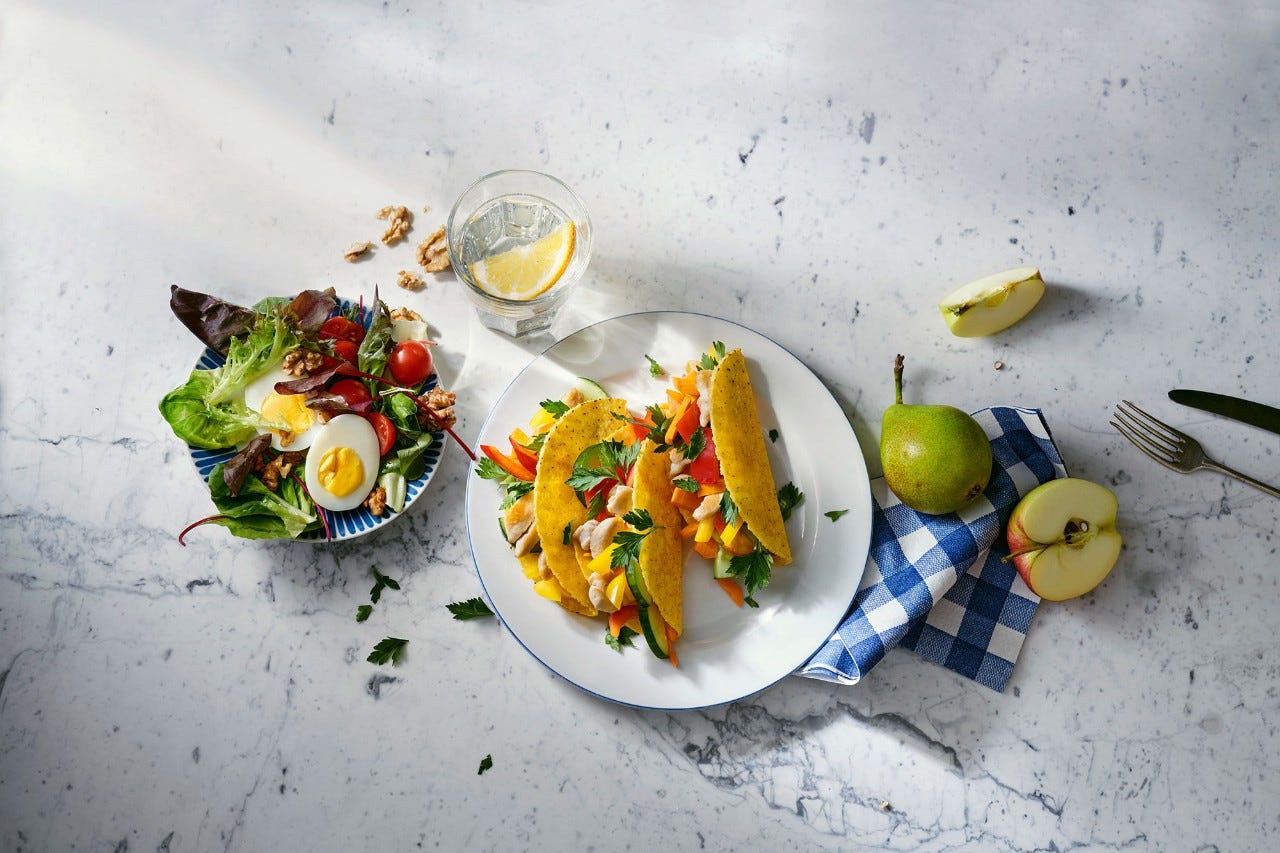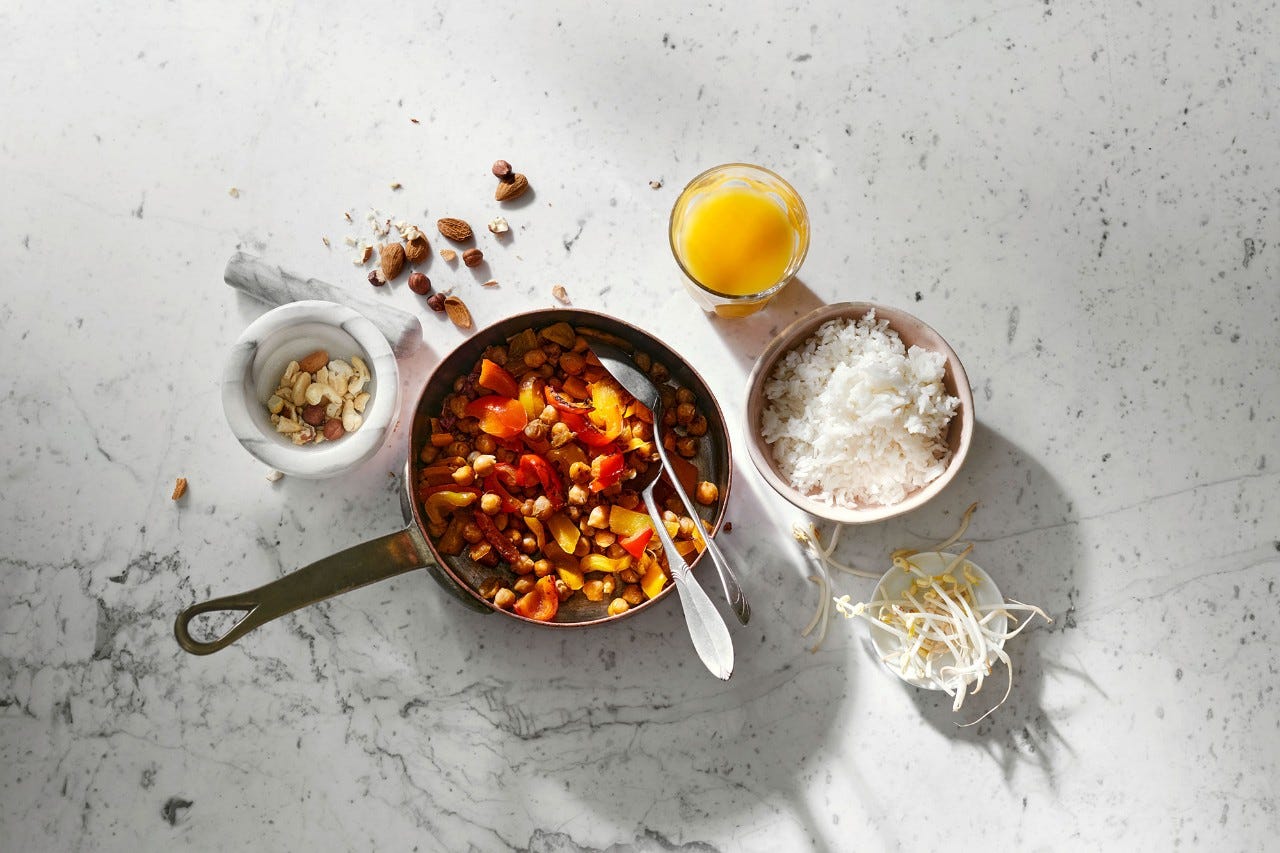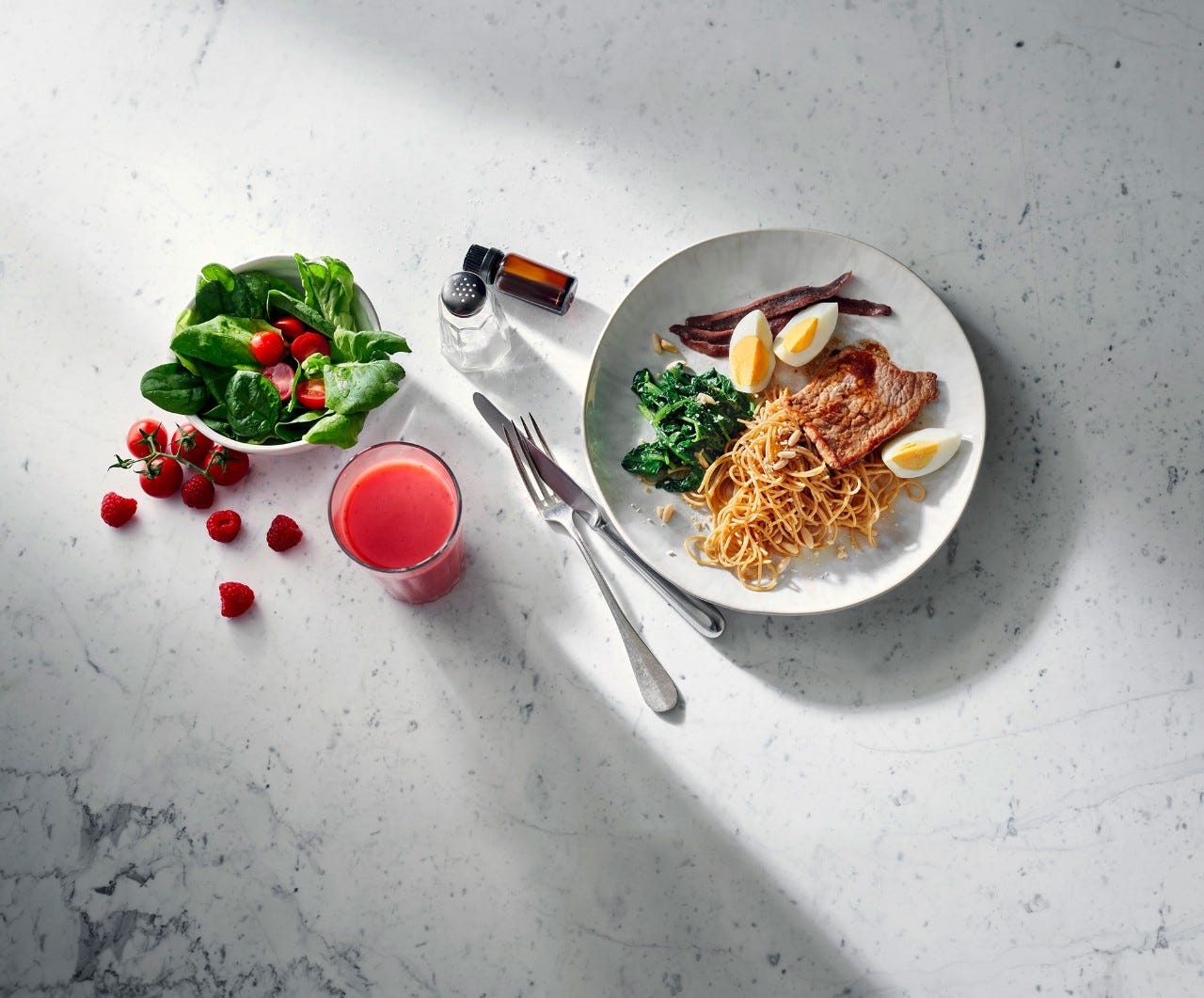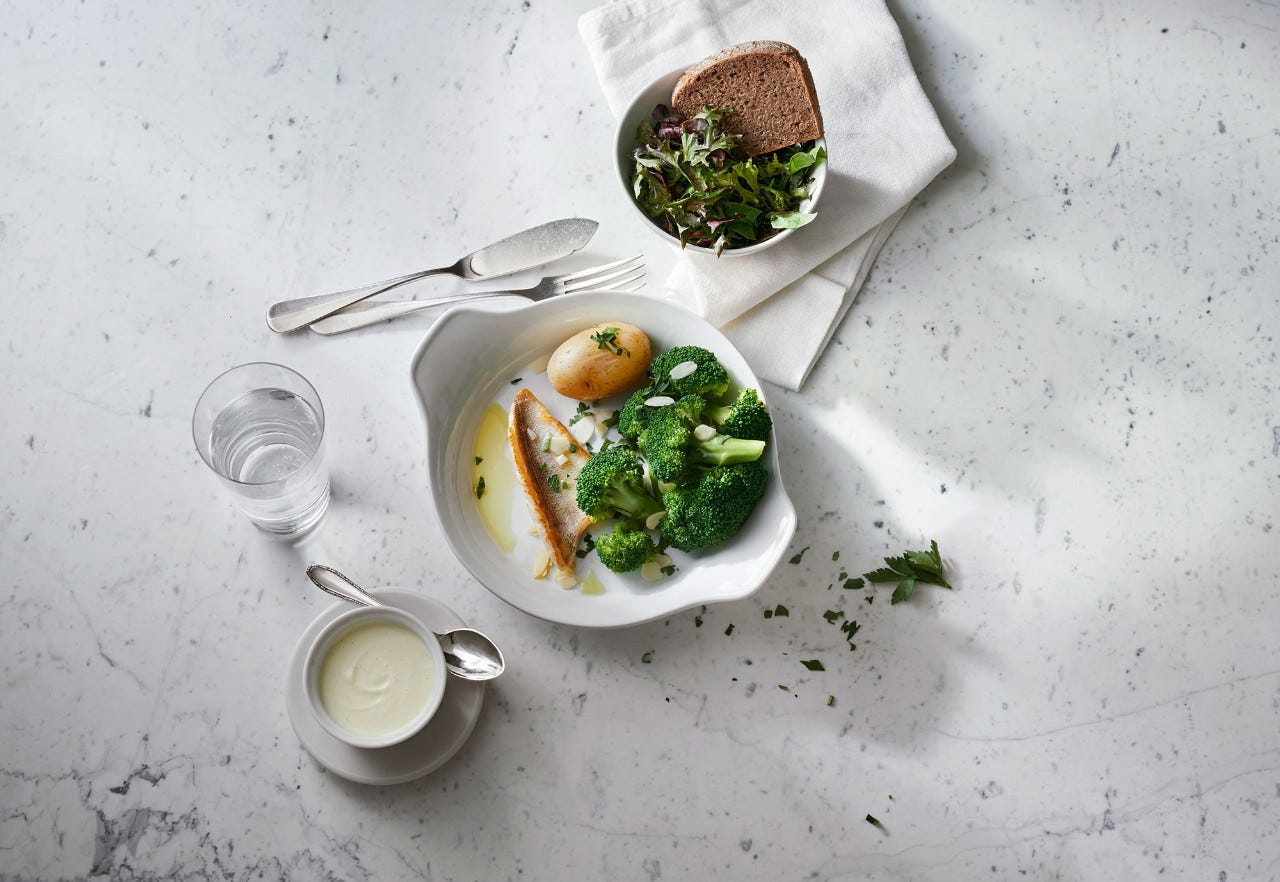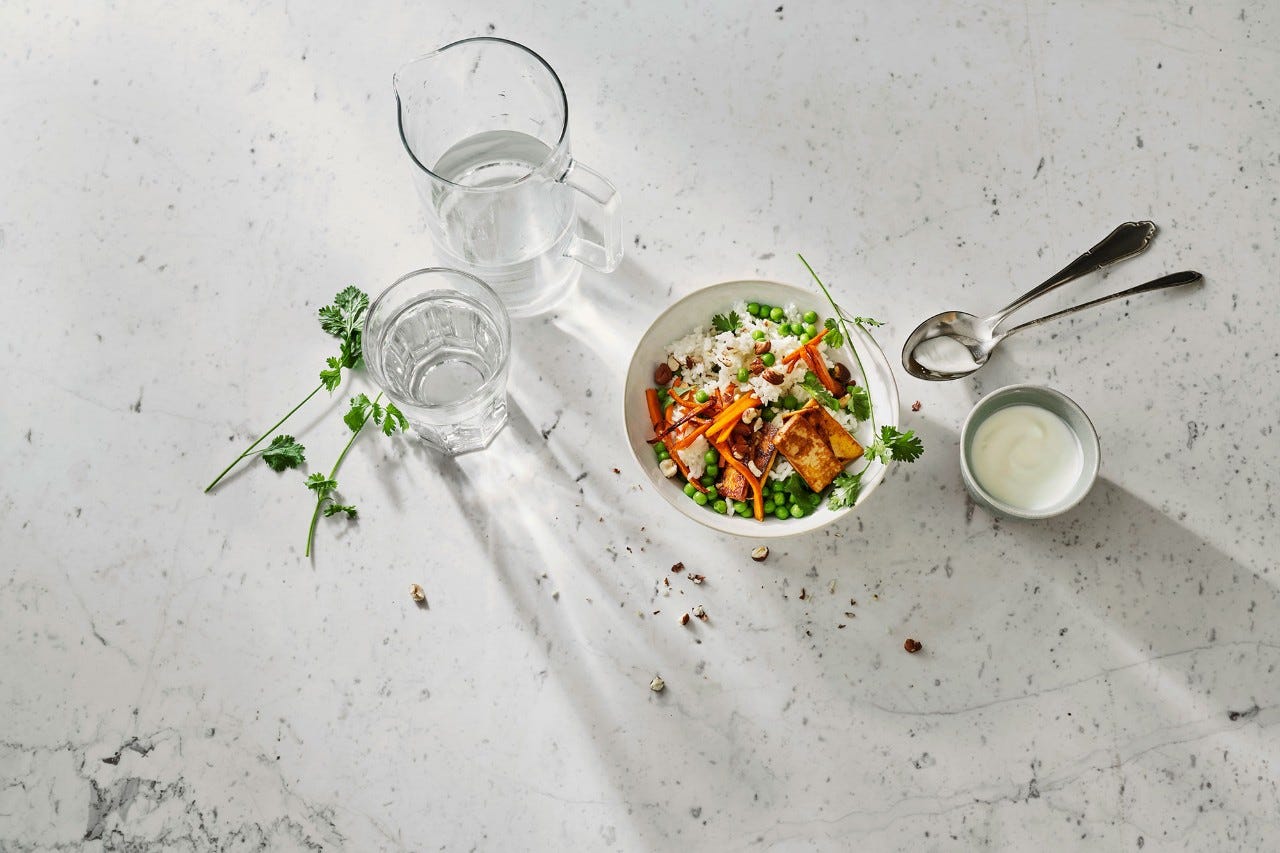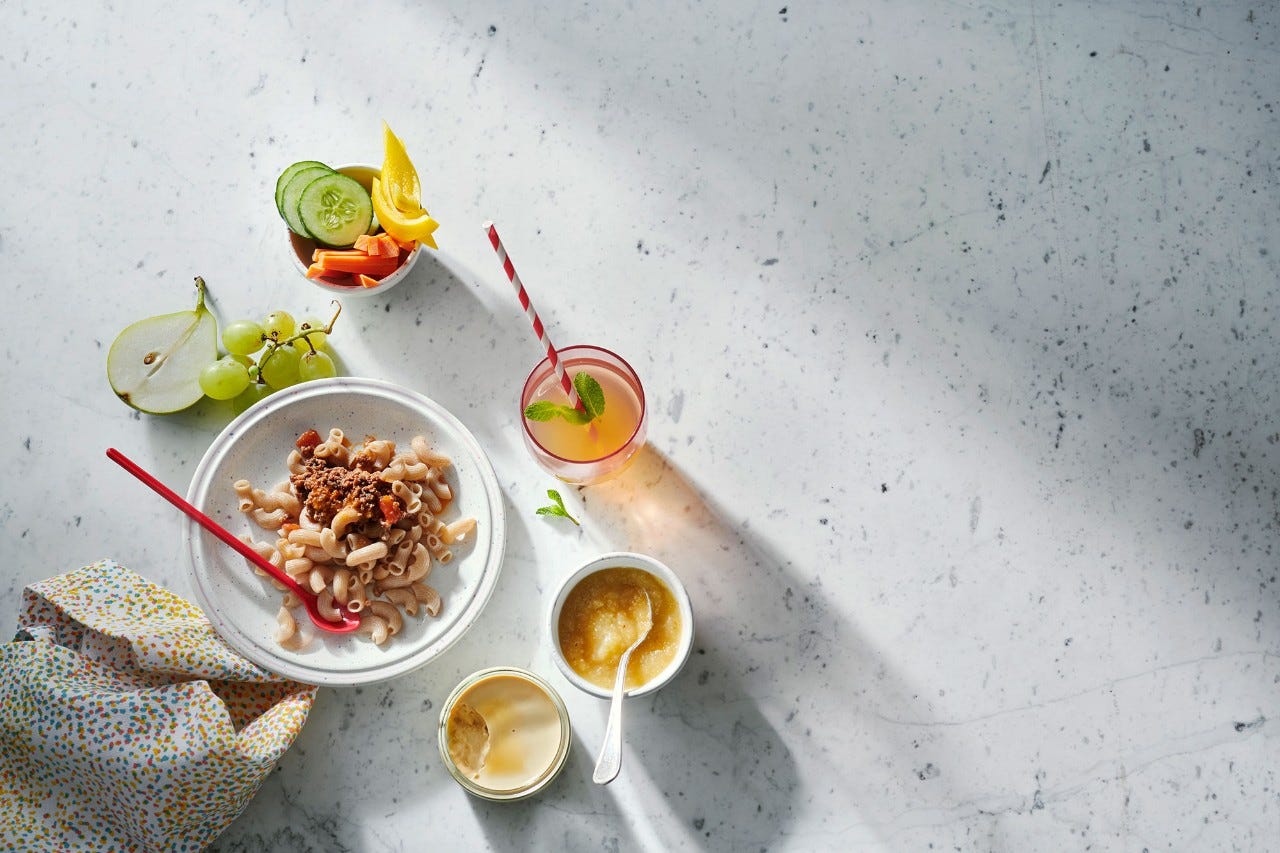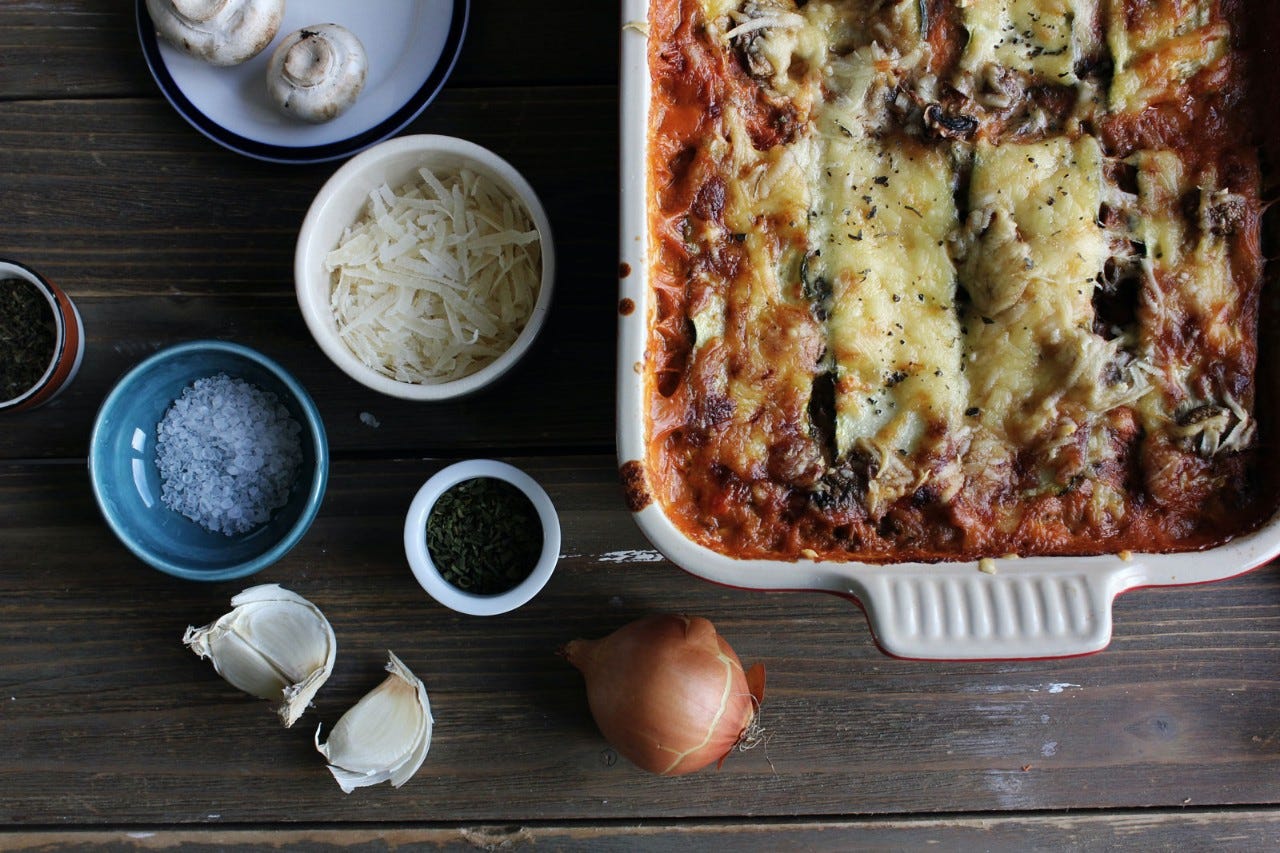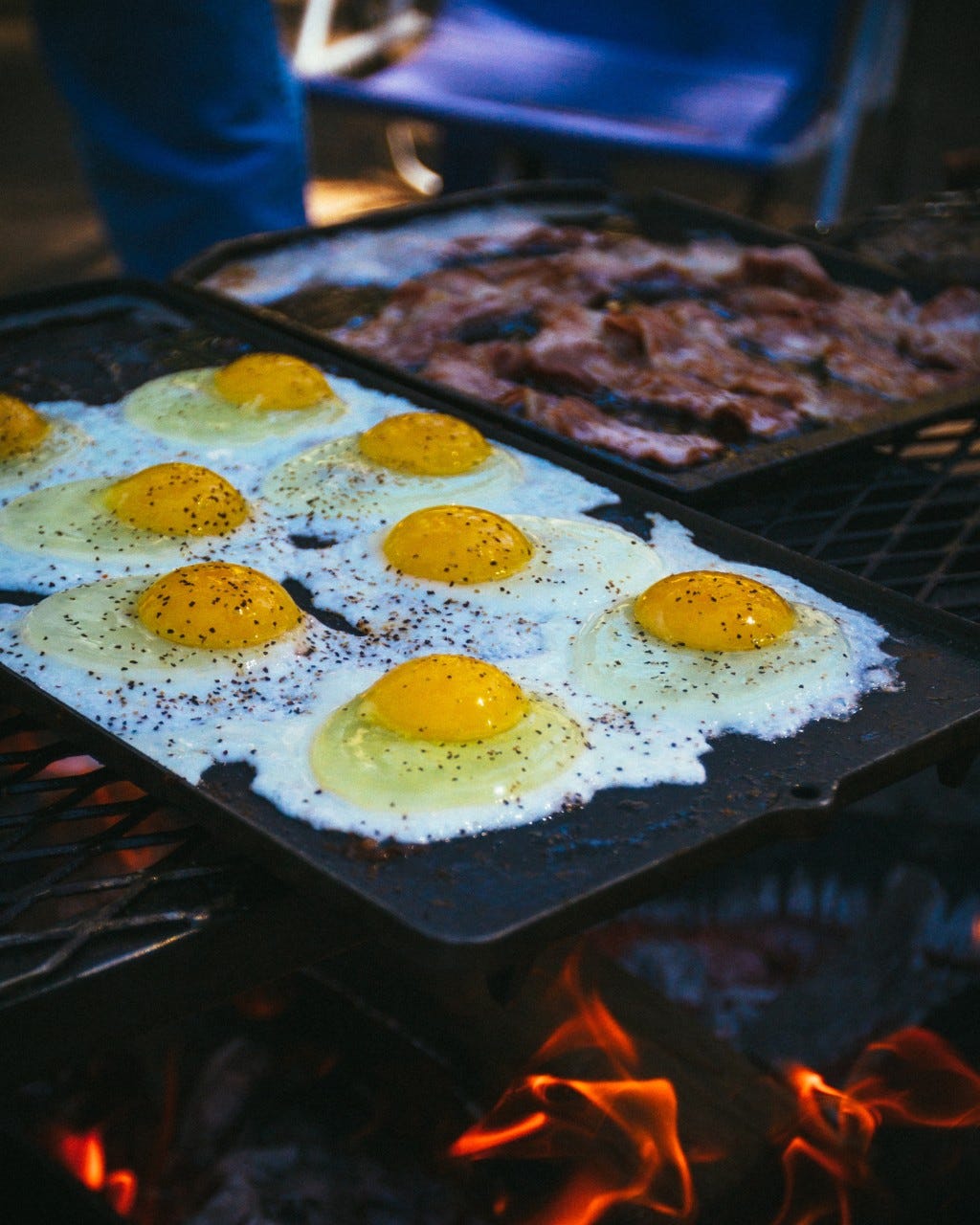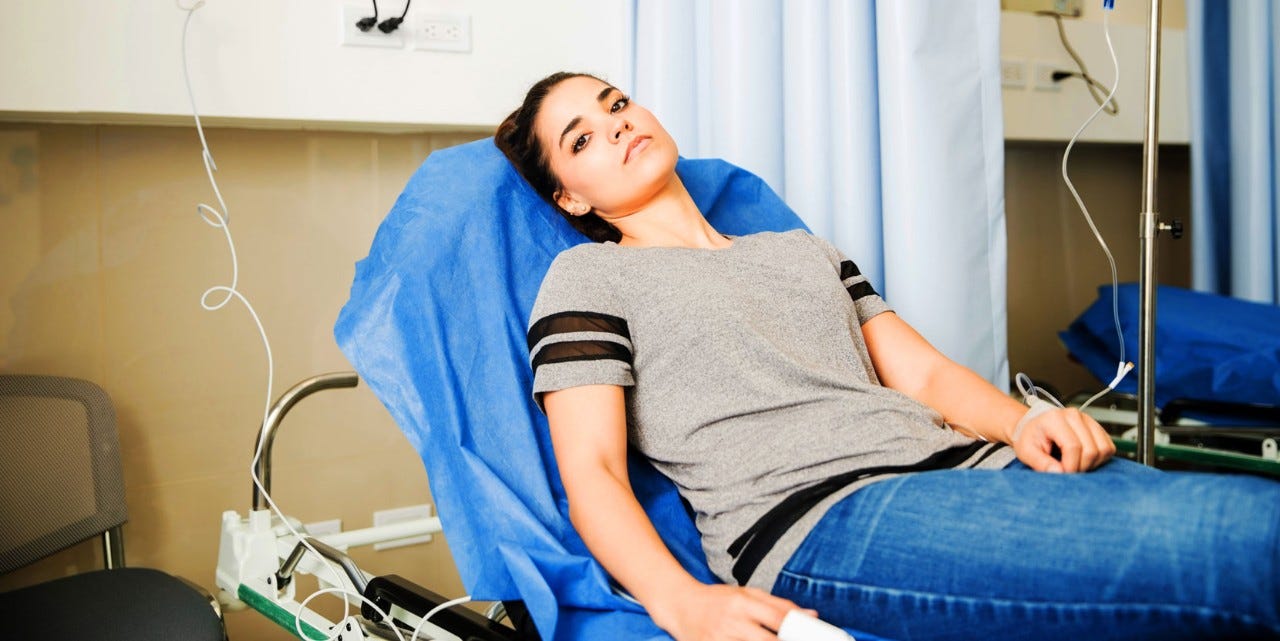A diet tailored to your needs works wonders
The best diet and nutrition depends on your age and phase of life. What vitamins does a pregnant woman need? How can vegans cover their iron requirements?
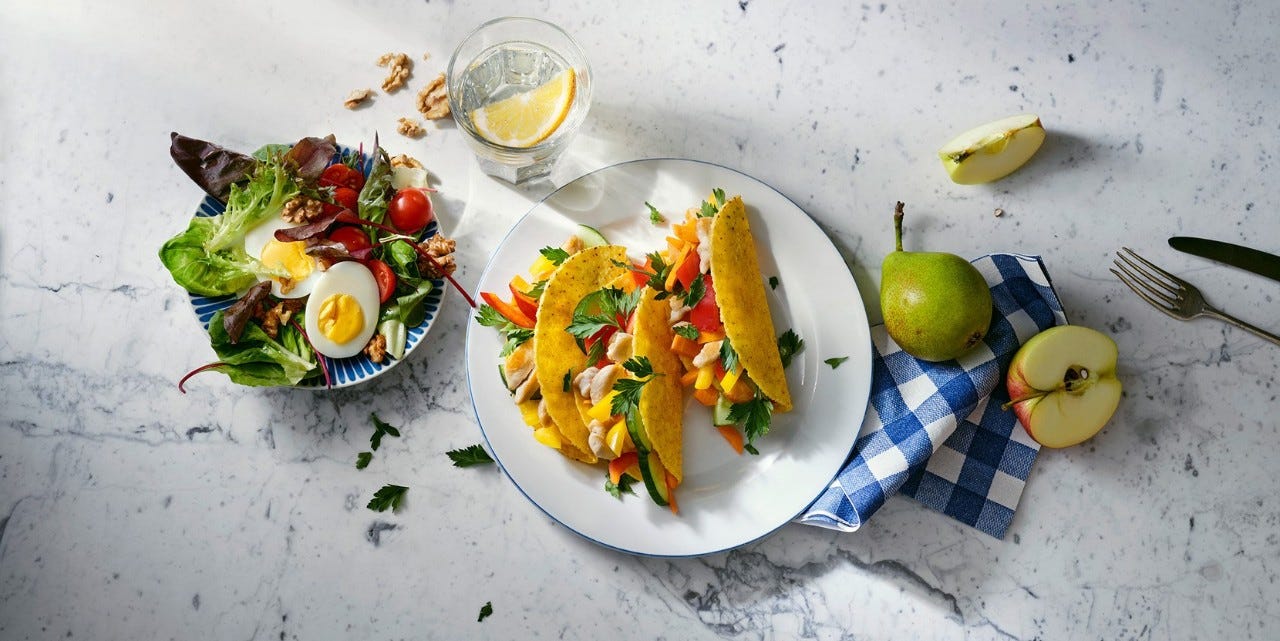
Young people
Fluids
The best way to quench your thirst is to drink water. Water containing plenty of calcium is ideal for children who have a higher calcium intake. Soft drinks and energy drinks contain an overabundance of sugar and can cause obesity. What’s more, the sugar and acids in soft drinks are no good for your teeth. Be careful with ‘diet’ drinks: these also contain acids and, like soft drinks, can make you crave sweet tasting food and drink.
Fruit and vegetables
Children and young people are constantly growing and still developing which is why they require more energy and nutrients. They need to eat a balanced and diverse diet. Fast food and snacks contain too much energy in the form of fats or sugar and are lacking in vitamins, minerals and dietary fibres. If you’re determined to eat fast food, then don't forget your five a day!
Three main meals and possibly two small snacks are recommended. Our tip: Eat slowly and enjoyably, in company and sitting down. Don’t skip breakfast! Eat five portions of fruit and vegetables a day in different colours. – From breakfast to dinner, at every mealtime! Eat three portions of potatoes, pulses and grains (ideally wholegrains) a day.
Protein
Protein is vital in adolescence. These requirements are easily covered with three portions of milk products and one portion of meat, fish, eggs, tofu, quorn, seitan, cheese or curd cheese.
Vegetarians and vegans
Your body is better able to absorb iron from plant-based sources such as pulses, salsify, chard and nuts if you combine it with something rich in vitamin C such as a glass of orange juice.
In addition to protein and iron, vegans often have a low intake of omega-3 fatty acids, vitamins B12 and D, and the minerals calcium, selenium and zinc. - It is therefore vital that they actively try to maintain a balanced diet.
In order to satisfy their protein requirements, vegetarians and vegans should eat tofu, seitan, tempeh, soya meat, quorn or pulses (lentils, kidney beans etc.) on a daily basis. Protein can also be found in soya drinks or yoghurt and grains (oats, quinoa or amaranth). Lacto-ovo vegetarians are usually able to satisfy their needs through milk, cheese and eggs.
Good combinations delivering minerals and protein: Grains with seeds, nuts or grains with pulses.
Pregnant women
The need for minerals and vitamins is particularly high now. Therefore: Eat and drink colorful and varied! From the fourth month of pregnancy, mums-to-be require more protein in addition to energy.
Iron
Meat and eggs are packed full of iron. Plant-based iron can be found in wholegrain products, pulses, nuts, spinach and chard. These should always be consumed in combination with vitamin C, for example with berries. Dietary fibres in wholemeal bread/rice/pasta can help prevent constipation. Anchovies contain omega-3 fatty acids – these are vital for the development of the brain. Linseed oil, rapeseed oil and walnuts are also a good source of omega 3.
Folic acid, iodine and vitamin D
Folic acid is absolutely essential. Eat plenty of fruit and vegetables, pulses and wholegrain products and, if possible, start taking folic acid tablets before trying to conceive.
During pregnancy the body requires more iodine. We therefore recommend always using iodised salt. Expectant mothers also need an extra dose of vitamin D. This is because admission via milk and dairy products, fish, egg yolk and mushrooms is often not enough.
The elderly
Fluids
The natural sensation of thirst decreases as we get older. It is therefore even more important that you drink 1 to 2 litres a day, especially in order to keep your brain ticking over. Unsweetened drinks are best. Mineral water rich in calcium is also good for bone density.
Protein
Older people do not need as many carbohydrates as younger people because their energy levels sink. This makes protein all the more important: Muscle mass declines steadily in old age, a sufficient supply of protein helps to counteract this.
Vitamins and minerals:
Vitamins and mineralsA varied diet rich in vitamins and minerals is doubly important for the elderly, as their bodies are no longer as efficient at absorbing nutrients. Vitamin B12 is found in meat, but also in yoghurt, sour milk and sauerkraut. Milk and milk products are (in addition to fish, egg yolks and mushrooms) also a good source of vitamin D which is essential for healthy muscles and bones, but tends not to be absorbed as effectively by the skin in old age. A vitamin D supplement might make sense during the winter months.
Fats
Fats and oils provide the body with valuable fatty acids: 2-3 tablespoons of rapeseed oil or olive oil, or a small handful of nuts or seeds daily should suffice.
Young athletes
Fluids
If you are very physically active, you need more than the usual one to two liters of fluid. Rule of thumb: Drink an additional 0.4 to 0.8 liters per hour of exercise.
Carbohydrates and proteins
Professional athletes need an extra serving of energy. Mealtimes should be spread out over 5 or 6 portions throughout the day so that you don’t overexert your stomach and bowels. Every meal should contain carbohydrates from cereal products (bread, pasta, rice, potatoes, corn, muesli etc.) Proteins help build muscle We recommend incorporating 3 portions of milk products and one portion of meat, fish, egg or tofu, quorn or seitan, cheese or curd cheese daily.
Fats
A daily dose of vegetable oil, preferably rapeseed or olive oil, plus 1 portion (20 - 30g) of unsalted nuts, seeds or kernels ensure sufficient fats in your diet. Around 20 to 30% of your daily energy intake should come from fat.
Child
Fluids
It is very important to drink enough: a one-year old child should drink about 0.6 l a day. From the age of 2 to 3, 0.7 litres, between the ages of 4 and 6, 0.8 litres, 7 to 9, 0.9 litres, from the age of 10 to 12, 1 litre, and 13 to 18 year olds should drink 1 to 1.5 litres. We recommend tap water, mineral water (ideally one rich in calcium), unsweetened herbal and fruit teas and very weak fruit juices.
Protein and carbohydrates
Protein is vital for growth, meat also supplies the body with vitamins B1, B2, B12, niacin, zinc and iron. Vegetarian sources of protein include tofu, pulses and eggs, and sufficient carbohydrates are also essential for children. ideally from wholegrain products. Children often turn their noses up at these due to the brown colour. Wholemeal pasta or wholemeal rice should therefore be mixed with the sauce before serving. Important: Do not introduce whole grains suddenly, but gradually so that the intestines can keep up.
Vitamins and calcium
Fruits and vegetables: Five a day! Even for the little ones. For little ones, too. This means five fist-sized portions, in all colours of the rainbow, half of which should be raw. How to achieve this. Incorporate fruit and vegetables into every meal: breakfast, elevenses, lunch, afternoon snack and dinner! Milk and milk products are well-known sources of calcium and vitamin D. Yoghurt contains roughly the same amount of calcium as milk, cheese even more. Calcium can also be found in green leafy vegetables, wholemeal, nuts and mineral water, and vitamin D in fish, butter, egg yolks and mushrooms. A vitamin D supplement might make sense during the winter months.
